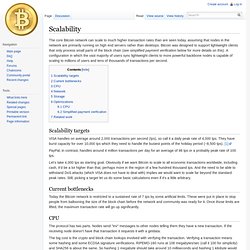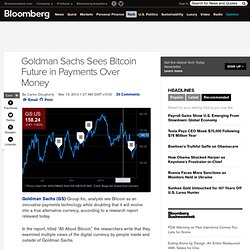

Lets Talk Bitcoin. Palo Alto Bitcoin 'vault' Xapo raises $20M from Benchmark, others. Bitcoin vault startup Xapo, led by CEO Wences Casares, raised $20 million in first round funding from Benchmark and others.

Bitcoin "vault" startup Xapos raised $20 million in first round funding to expand its secure online storage services for the digital currency. The Palo Alto company led by founder and CEO Wences Casares said the round was led by Benchmark, with Ribbit Capital and Fortress Investment Group also participating. Security of Bitcoin holdings has been an ongoing concern, highlighted by the recent bankruptcy of Tokyo-based online exchange Mt. Gox in which millions of dollars worth of the virtual currency has gone missing.
Xapo says it uses servers in secret underground locations around the world, staffed by armed security guards. In addition to the Bitcoin storage service, Xapo said it also offers a "wallet" that customers can use to move bitcoins around at the click of a button. It also said that its Bitcoin deposits are fully insured by Meridian Insurance. Bitcoin’s future: Hidden flipside. Scalability. The core Bitcoin network can scale to much higher transaction rates than are seen today, assuming that nodes in the network are primarily running on high end servers rather than desktops.

Bitcoin was designed to support lightweight clients that only process small parts of the block chain (see simplified payment verification below for more details on this). A configuration in which the vast majority of users sync lightweight clients to more powerful backbone nodes is capable of scaling to millions of users and tens of thousands of transactions per second. Scalability targets VISA handles on average around 2,000 transactions per second (tps), so call it a daily peak rate of 4,000 tps. They have burst capacity for over 10,000 tps which they need to handle the busiest points of the holiday period (~8,500 tps). [1] PayPal, in contrast, handles around 4 million transactions per day for an average of 46 tps or a probably peak rate of 100 tps.
Let's take 4,000 tps as starting goal. Network Storage. Randy-lawnmole comments on The Economist: Hidden flipside - How the crypto-currency could become the internet of money. Randy-lawnmole comments on The Economist: Hidden flipside - How the crypto-currency could become the internet of money. Tomorrow's Apps Will Come From Brilliant (And Risky) Bitcoin Code. For many, bitcoin — the distributed, worldwide, decentralized crypto-currency — is all about money … or, as recent events have shown, about who invented it.

Yet the actual innovation brought about by bitcoin is not the currency itself but the platform, which is commonly referred to as the “blockchain” — a distributed cryptographic ledger shared amongst all nodes participating in the network, over which every successfully performed transaction is recorded. And the blockchain is not limited to monetary applications. Borrowing from the same ideas (though not using the actual peer-to-peer network bitcoin runs on), a variety of new applications have adapted the bitcoin protocol to fulfill different purposes: Namecoin for distributed domain name management; Bitmessage and Twister for asynchronous communication; and, more recently, Ethereum (released only a month ago).
Bitcoin Middle Ground. Goldman Sachs Sees Bitcoin Future in Payments Over Money. Goldman Sachs (GS) Group Inc. analysts see Bitcoin as an innovative payments technology while doubting that it will evolve into a true alternative currency, according to a research report released today.

In the report, titled “All About Bitcoin,” the researchers write that they examined multiple views of the digital currency by people inside and outside of Goldman Sachs. “So where does that leave us? With the conclusion that Bitcoin likely can’t work as a currency, but some sense that the ledger-based technology that underlies it could hold promise,” the report said. Bitcoin emerged from source code written by an anonymous developer or group of developers using the name Satoshi Nakamoto in 2009, and attracted a following motivated in part by the ability to escape the strictures of traditional currency, notably government control. “The tone overall is conservative and measured,” Terpin said of the report. A Digital Currency Company. A Digital Currency Company.